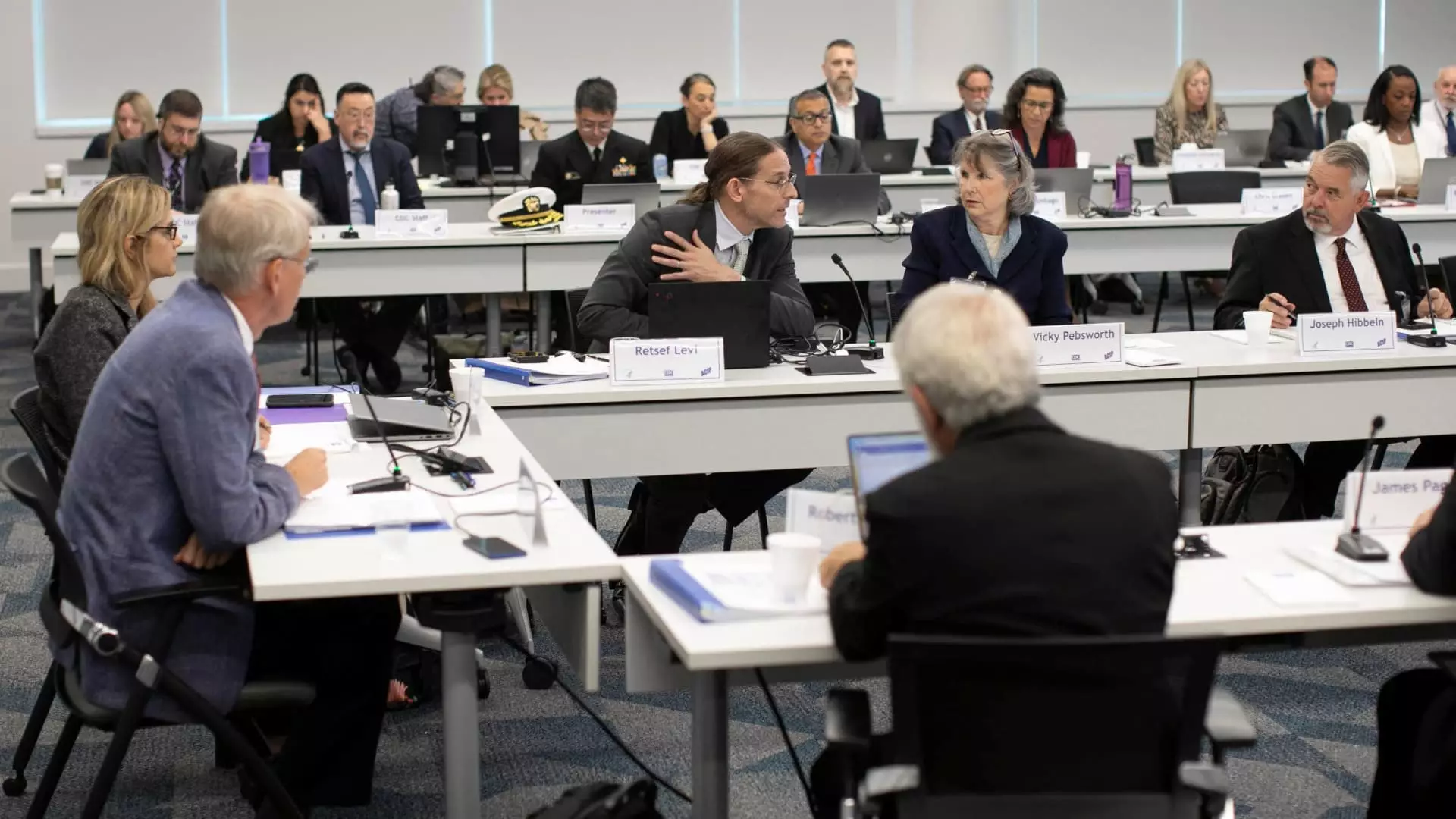In recent months, the once steadfast narrative surrounding COVID vaccines in the United States has become increasingly murky, exposing a troubling divergence between scientific consensus, government messaging, and political motivations. The latest maneuver by the Advisory Committee on Immunization Practices (ACIP), under the influence of Secretary Robert F. Kennedy Jr.’s handpicked members, signals a dangerous retreat from the clear, evidence-based vaccination recommendations that once aimed to achieve widespread immunity. Instead of advocating for vaccination as a public health imperative, the panel suggests a more individualized, cautious approach—recommending that Americans “consult their healthcare providers” before receiving COVID shots. This subtle shift, cloaked in euphemistic language of “shared decision-making,” risks undermining the collective effort needed to contain a still-capable virus and foments confusion about the safety and importance of vaccines.
The policy implications are profound. When authorities advise personal discretion over universal vaccination, especially in a highly contagious disease, they inadvertently foster vaccine hesitancy rooted in doubt and uncertainty. The guidance’s departure from prior years—where the government strongly recommended all children and adults to get the latest booster—makes it more difficult for Americans to discern whether vaccination remains a public duty or an optional gamble. This ambiguity can be exploited by misinformation and political rhetoric, further fracturing public trust in health institutions.
Political Influence Undermining Scientific Integrity
It is impossible to ignore the political undertones influencing these decisions. Kennedy’s appointment of controversial critics and skeptics of mRNA technology to the very panel responsible for vaccination policy signals an alarming politicization of public health. The recent votes revealing doubts among members about the safety and efficacy of COVID vaccines reflect a troubling agenda—one that blurs scientific evidence with ideological opposition.
Furthermore, the shifting stance on vaccinating specific groups, such as healthy children and pregnant women, highlights a gradual erosion of consensus that has traditionally underpinned American vaccination programs. The CDC, which should act as the national beacon of scientific authority, appears increasingly detached from the latest credible data, as evidenced by its delayed adoption of the panel’s softer recommendations. Concurrently, some states are diverging from federal guidance altogether, allowing broad access to vaccines, while the federal apparatus muddles its messaging—creating a fractured and incoherent public health landscape.
This political interference is not just a matter of bureaucratic delay; it threatens the very foundation of trusted science-based policymaking. When vaccine recommendations become entangled with partisan interests, it diminishes the public’s confidence and fuels detrimental skepticism that can prolong the pandemic or allow new variants to emerge unchecked.
Conflicting Data and Public Confusion
The scientific community continues to affirm the safety and efficacy of COVID vaccines, particularly those using mRNA technology. Multiple rigorous studies have demonstrated that these vaccines have saved millions of lives globally, primarily among vulnerable populations. Yet, within the corridors of decision-making bodies like ACIP, dissenting voices cast doubt on long-established data, suggesting that the effectiveness of these vaccines may be overestimated or that safety concerns should be reexamined.
This division within the expert community is not trivial; it shapes policymaking that directly impacts millions. The claims made by skeptics—questioning the robustness of hospitalization data or advocating for personalized prescriptions—are often based on interpretations that overlook the overwhelming evidence supporting vaccination.
Moreover, the current atmosphere encourages a hyper-focus on rare adverse events, which, while important to acknowledge and monitor, are statistically insignificant compared to the lives saved and the broader societal benefit. When vaccine hesitancy is fueled by such fragmented debates, society risks undoing years of progress and leaving populations vulnerable to avoidable harm.
The Future of Vaccination in a Divided America
The landscape ahead appears uncertain and potentially perilous. Insurance companies and healthcare providers face mounting ambiguity because of the conflicting signals coming from federal panels and state policies. While some insurers pledge to cover all vaccines recommended by official bodies, the weakening of standardized guidelines could introduce disparities in access and affordability, particularly among marginalized populations.
Amidst this chaos, the real victims are the American people—confused, mistrustful, and increasingly disengaged from public health initiatives. Community immunity hinges on a unified, science-backed approach, and the current discord threatens to fragment our collective resilience.
The truth is—vaccines remain one of the most powerful tools we possess against COVID-19. The fact that they have dramatically reduced hospitalizations and fatalities remains undeniable. However, allowing political and ideological influences to dilute clear messaging and evidence-based policies not only jeopardizes public health but also erodes the foundational trust necessary for future crisis management. Ultimately, the challenge is to restore a balanced, centered approach that recognizes the importance of science, respects individual choices, and commits to transparent communication—lest we risk abandoning the hard-won gains against this persistent virus.


Leave a Reply